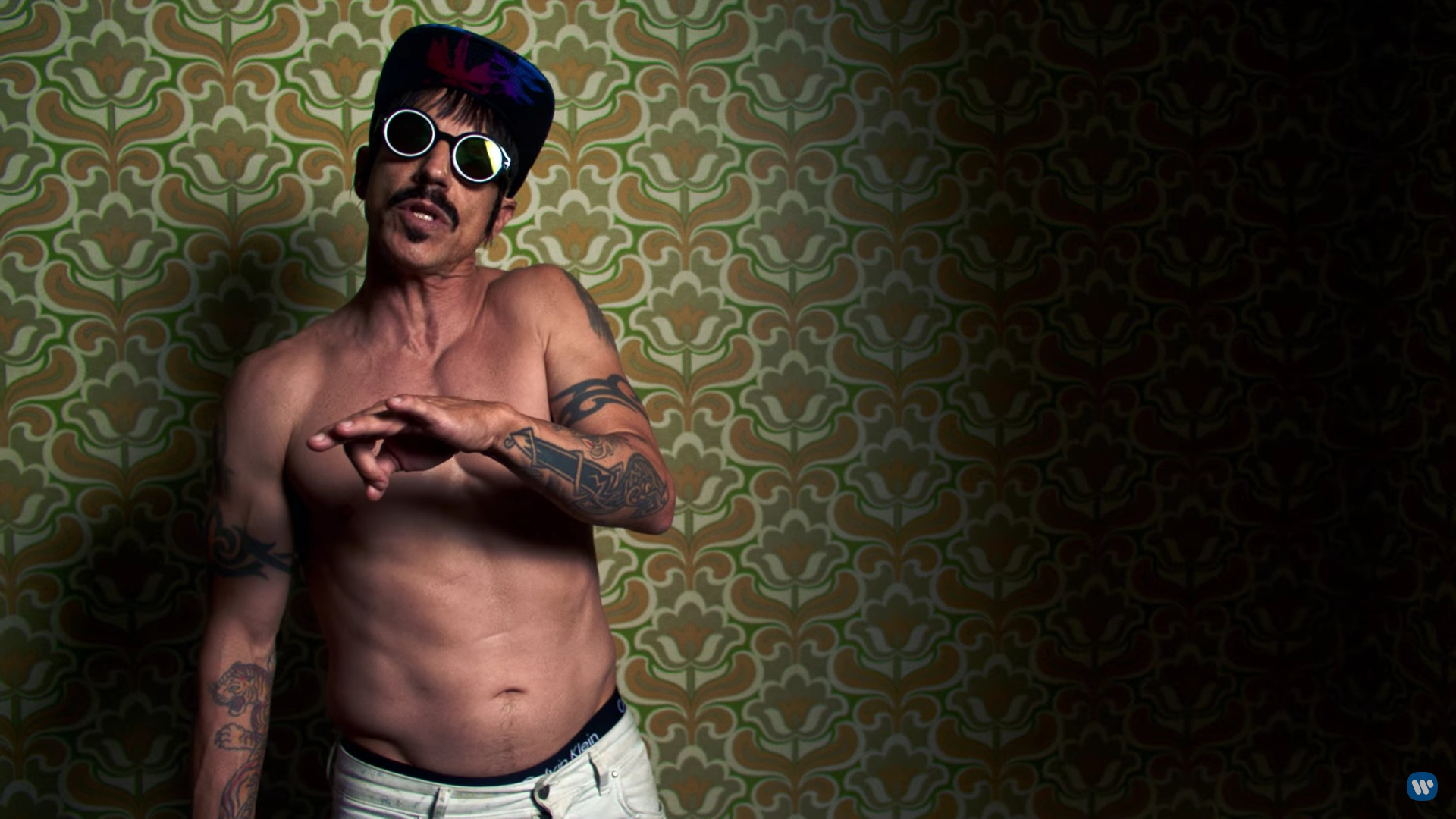The cover of the Red Hot Chili Peppers’ latest album, The Getaway, features a small girl traveling through graffiti-covered streets with a bear and raccoon. Its tracklist stars song titles like “Dreams of a Samurai” and “Feasting on the Flowers.” To promote the record, the band appeared on James Corden’s Late Late Show segment “Carpool Karaoke,” during which lead singer Anthony Kiedis apparently saved the life of a baby who wasn’t breathing.
So given the classic weirdness surrounding the funk-rock pioneers’ 11th album, perhaps the most remarkable part of The Getaway is how normal it is.
Of course, when discussing the Red Hot Chili Peppers, “normal” is an asterisked word. The iconic California rock group — famed for performing in nothing but incorrectly-worn tube socks — has long used its fondness for oddity as a signifier. Absurd stage getups, nonsensical lyrics and instrumentals that seamlessly blend genres with enthusiasm, if not subtlety, have long served as the band’s go-to record-making technique
And if anything, The Getaway‘s first two tracks offer the promise of continued strangeness. After all, on the opening track of the same name, Kiedis rhymes “supercavitation” with “a love hallucination” over a bed of funky bass — courtesy of Flea’s permanently calloused thumb — and a guitar riff that sounds like it was ripped from an ’80s synthpop record. “Dark Necessities,” the album’s first single, continues the acrobatic lyrical nonsense over a lively, aggressive bass line, heavy piano chords and funky guitar stabs. But while the writing remains silly (“Bit of light in a touch of dark/ You got sneak attacked from the zodiac”), it’s arguably the most recognizably Chili Peppers-sounding song on the album, and as the absurdity fades away during the chorus, it reaches into the darker, seedier world at the core of the band’s best material.
But The Getaway‘s biggest fault is hardly that it strays too far from the band’s quintessential sound. In fact, the vast majority of songs on the album would sound at home on any post-One Hot Minute Chili Peppers record. While producer Danger Mouse (The Black Keys, Adele) may have replaced career career-revitalizer Rick Rubin, Mouse’s signature pop sheen doesn’t hurt the album as much as its often-boring songwriting and lack of experimentation do.
Back-to-back mid-album cuts “The Longest Wave” and “Goodbye Angels” are perfectly pleasant slices of guitar pop, with nearly identical finger-picked guitar intros and fairly standard lyrics, sung with about as much range as one would expect from a vocalist who spent the first half of his career poorly rapping over funked-out rock songs.
While the poppier songs might bore, they’re not nearly as offensive as “Detroit,” the album’s attempt at the hard rock the Peppers used to be able to pull off convincingly. An ugly, distorted guitar riff, church bells and shrieky vocals (eventually drenched in vocoder) can’t be saved by a shout out to J Dilla, whose work will always be a better tribute to the city of Detroit than whatever the Red Hot Chilli Peppers were able to whip up in 2016. “This Ticonderoga” is a slightly better shot at “bringing back rock, man,” but it still suffers from a general messiness that seems at odds with the rest of the album’s all-too-careful approach to song composition.
The only time The Getaway truly nails its pop ambitions is on “Sick Love,” an excellent slice of summer jammin’ that features Elton John on the piano and allows Klinghoffer — long stranded in the shadow of his predecessor, John Frusciante — to truly flex his prowess as a guitarist. Not only does “Sick Love” boast what is easily the album’s catchiest hook, but it also showcases some of Kiedis’ best writing in years. “Vanity is blasted but it’s rarely fair/ I could smell the Prozac in your pretty hair,” he sings with some much-needed energy on the track’s opening verse.
Though a mildly enjoyable listen, The Getaway, proves more frustrating than anything. It’s certainly not a bad collection of late-career rock songs, and save for a couple of avoidable missteps, nothing disastrous occurs. But unfortunately, nothing particularly notable happens either. In fact, the only question the album truly begs is “Why?” At this stage in their career, the group’s legacy is secured, and while The Getaway doesn’t change that, it certainly won’t serve as anything other than another asterisk to the one that serves as their logo. Still, at the very least, the members seem to be having fun doing what they do — and it’s hard to fault a group of shirtless 50-year-olds (and a way younger guitarist) for that.



